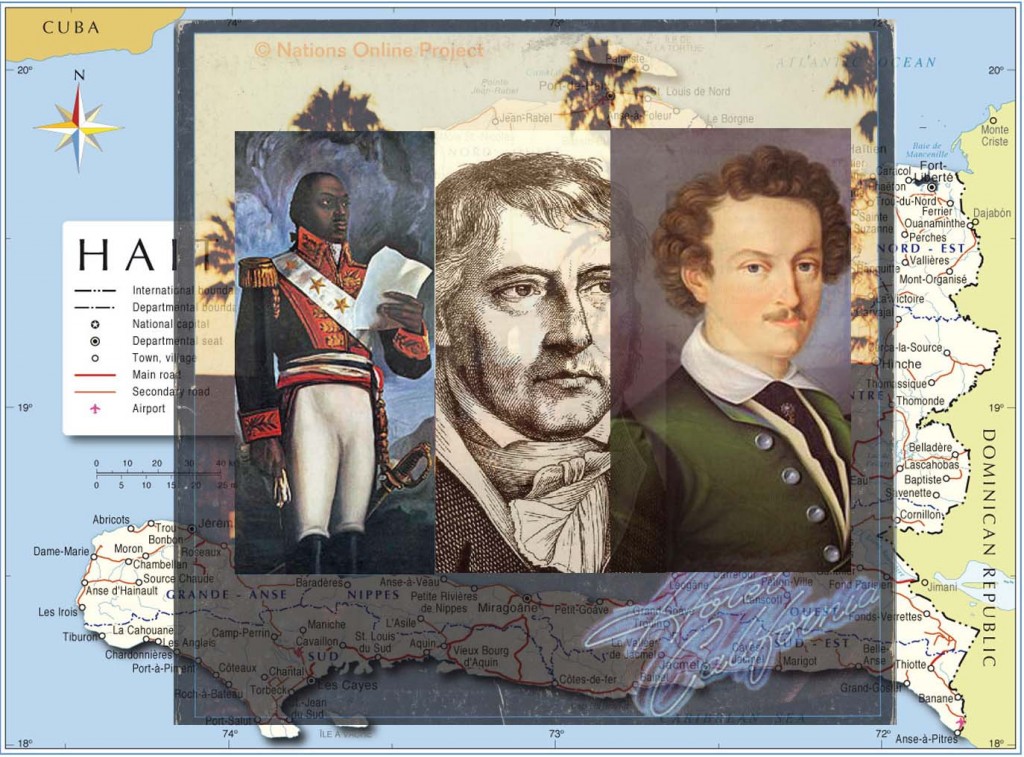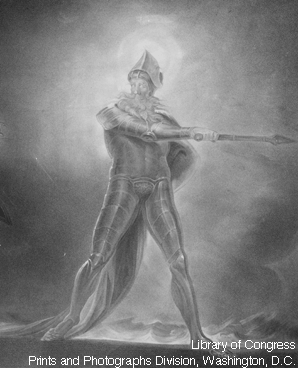While driving to the office on 25 January 2010, Megan was listening to a broadcast on National Public Radio (NPR) that was presenting an uncanny story from the recent earthquake off the coast of Haiti : “When the quake struck at 4:53 p.m. on January 12th,” said reporter John Burnett, “Signal FM [a radio station in Port-au-Prince] was playing ‘Hotel California.’ The Earth groaned and the building shuddered, but just before the DJ ran out, he had the presence of mind to hit the ‘repeat’ button…So for the first thirty minutes of Port-au-Prince’s descent into hell, the only thing you could hear on the radio was the Eagles’ standard—over and over and over.” Megan’s and Will’s recent article in Theatre Topics, “Hyperlinking and Hyperthinking through Theatre History: Haiti, Hotel California, Woyzeck, Hegel, and Back Again,” builds up around that bizarre story and culminates in an argument for Theatre History professors to embrace the power of serendipity.
When this story aired on All Things Considered, Megan and Will were in the opening weeks of the University of Minnesota’s TH3172, which traditionally covers a historical trajectory from the French Revolution to the present day. Slated for discussion that week in class was Georg Büchner’s Woyzeck, but Megan couldn’t shake the complexity of thought and feeling that the news report instigated. The challenge became clear: how could we link from present-day Haiti to Georg Büchner? The stakes of this challenge were even clearer: to teach students to develop a critical, historically-savvy self-reflexivity requires teachers to fight against the urge to muscle through the syllabus and, instead, to embrace contemporary events of the size and scope of Haiti’s earthquake.
By hyperlinking across time, space, and ideas, we asked our students to engage in hyperthinking—a way of thinking about history (or theatre or any topic) that involves making connections among seemingly disparate entities, and justifying these links and leaps. Couched within a larger discussion of Theatre History curricula and the potentially productive role of failure within the classroom, this article will hopefully fuel conversations already sparked on theater-historiography.org. You can access it through your library’s subscription to Project Muse. The citation information is as follows: Lewis, Megan and Daddario, Will. “Hyperthinking through Theatre History: Haiti, ‘Hotel California,’ Woyzeck, Hegel and Back Again.” Theatre Topics vol. 22 no. 2 (September 2012): 183-194.


